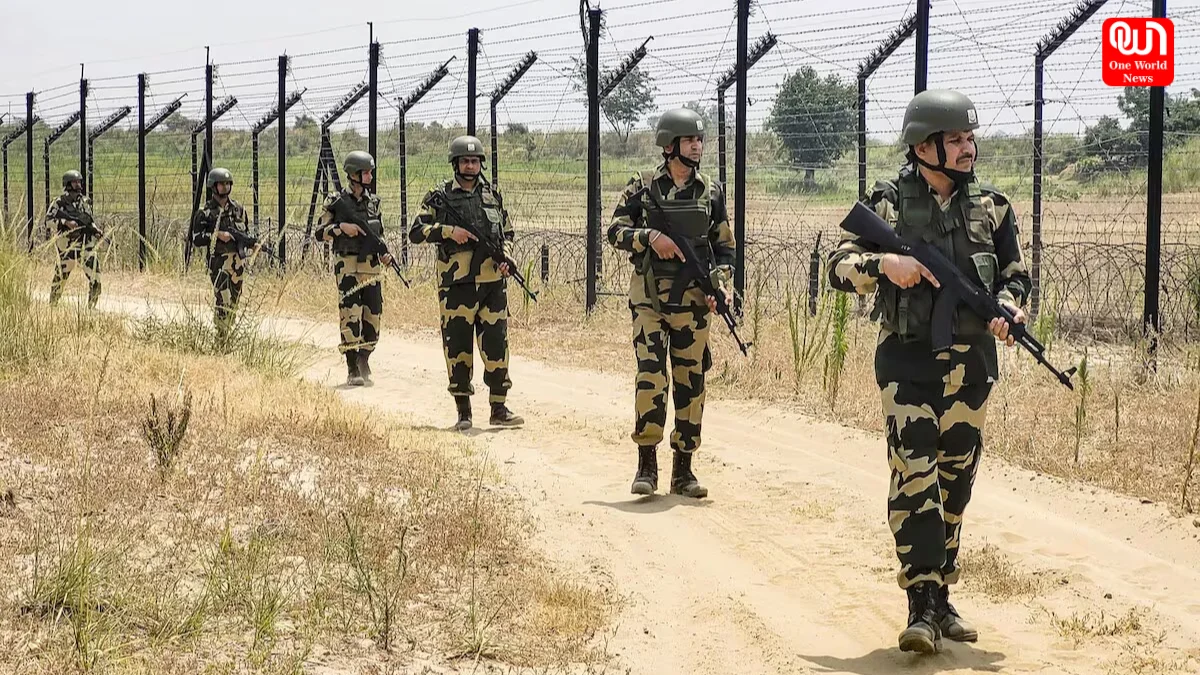BSF Intensifies Anti-Tunneling Efforts Along Pakistan Border Amid Rising Infiltration Concerns
BSF intensifies anti-tunneling and surveillance measures along the India-Pakistan border to counter rising infiltration and drone threats effectively.
BSF Strengthens Anti-Tunneling Operations and Surveillance Along India-Pakistan Border Amid Rising Infiltration Threats
In light of rising intelligence inputs suggesting infiltration attempts were on the rise, the Border Security Force has undertaken a major operation to mitigate the threat it posed along the India-Pakistan border. The operation has been running for months now, to pick up and effectively neutralize underground tunnels allegedly used by terrorists to infiltrate Indian territory.
According to a BSF senior officer, some specific stretches along the border identified as vulnerable to tunneling are the focus areas for these measures. Using highly scientific technology, BSF is carrying out systematic surveys of the land in search of cross-border tunnels. A milestone achievement has been that anti-tunneling trenches have been dug over a 25-km area of the International Border (IB) stretching across a vital 33 km of the International Border in the Jammu region, Samba, and Kathua districts. This region has seen tunnel incidents in the past, and therefore, people are more vigilant.
The ditches are about 4 feet wide and 10 feet deep, which is a strong barrier to underground infiltration. This was months ahead of the Jammu and Kashmir Assembly elections, which marked the importance of security in the region. According to the BSF, work on this project has been carried on for more than six months and is likely to be completed shortly, and then similar operations will start in other vulnerable areas. The last report of tunnel discovery was in 2022, and a need for continued proactive measures still exists.
India shares a 3,323-kilometer-long land border with Pakistan, covering the states of Gujarat, Rajasthan, Punjab, Jammu and Kashmir, and Ladakh. The topography of the regions and their unique security concerns require a unique approach to border management.
The BSF is not only working on anti-tunneling measures but also other emerging threats like the increasing number of drone-based smuggling and reconnaissance. Last year, the BSF recovered the highest-ever number of 257 drones from the Indo-Pakistan border, which speaks for the growing sophistication of cross-border activities. The BSF has put in place advanced anti-drone systems to counter this menace and has improved surveillance and interception capabilities.
In addition, the BSF has inducted more battalions to further reinforce its anti-infiltration grid along the Jammu Frontier. This is an effort to continue to maintain the strict control of depth areas which are critical in thwarting attempts at infiltration. The operational infrastructure also has been developed with lateral and axial roads to improve troop movement.
Read more: Could Usha Vance Face Citizenship Issues Under Trump’s Proposed Birthright Citizenship Order?
A recent BSF press release also emphasized the introduction of a New Design Fence in vulnerable border sections. The surveillance technology has been improved with the installation of CCTV, PTZ, and bullet cameras to monitor and record activities in high-risk zones. These are some of the multi-pronged strategies to improve security while responding to emerging threats.
The BSF’s continued efforts highlight its commitment to border security in India at a time when infiltration threats are increasing. With the addition of modern technology, infrastructural development, and increased patrolling, the force is providing an all-rounded defense mechanism. As these measures come into effect, they are likely to strengthen the country’s border security and discourage cross-border activities, thereby bringing about safety and stability in the region.
We’re now on WhatsApp. Click to join.
Like this post?
Register at One World News to never miss out on videos, celeb interviews, and best reads.








